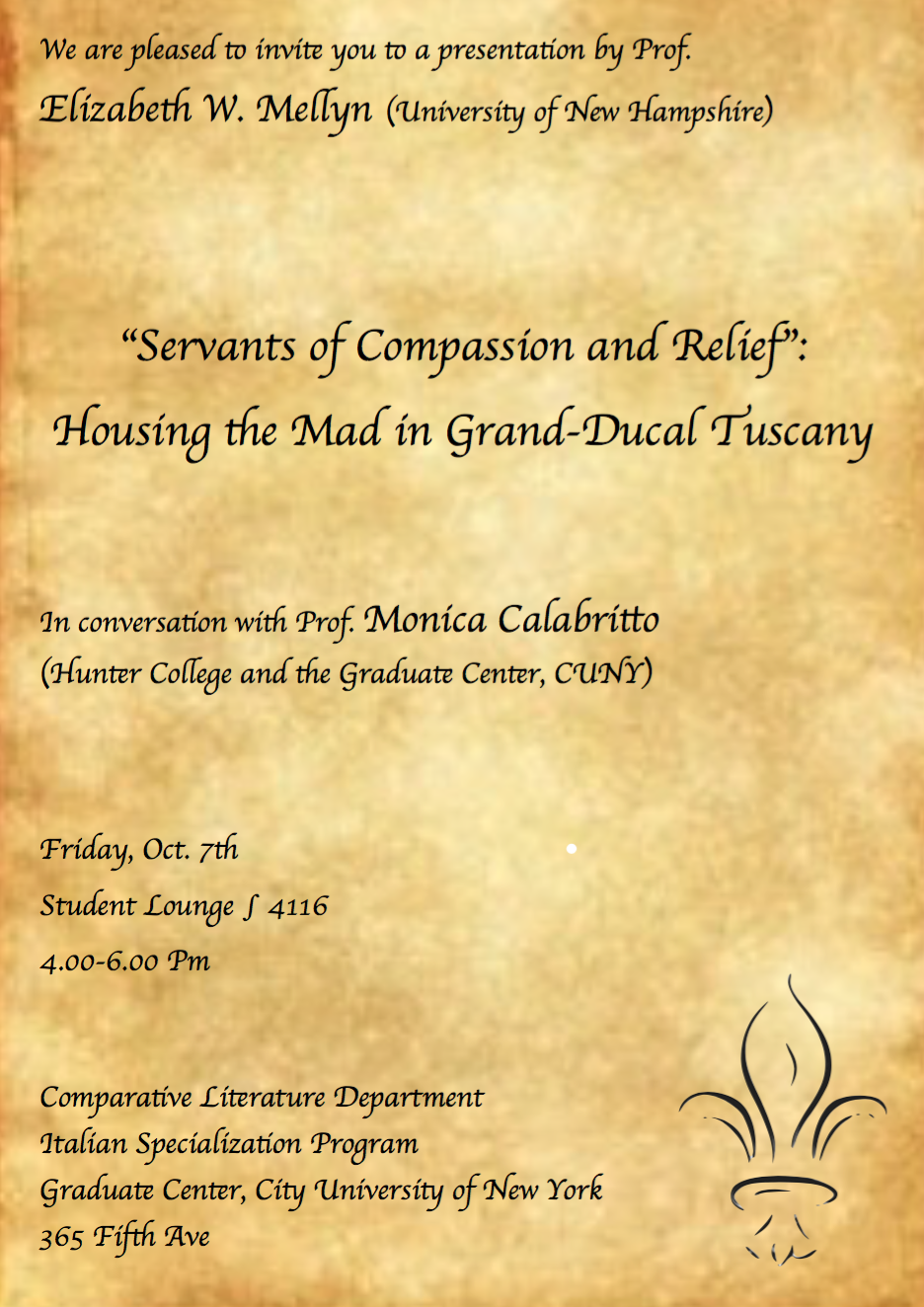
The Department of Comparative Literature and the Italian Specialization are pleased to invite you to a lecture by Elizabeth W. Mellyn (University of New Hampshire) entitled “Servants of Compassion and Relief’: Housing the Mad in Grand-Ducal Tuscany.” The lecture will take place in the Student Lounge of the Comparative Literature Department, and will start at 4PM. Light refreshments will be served after the event. See also the flyer attached to this message.
Elizabeth W. Mellyn is an Associate Professor of History at the University of New Hampshire where she teaches a range of courses in early modern European history. Her book Mad Tuscans and their Families: A History of Mental Disorder in Early Modern Italy was recently published by University of Pennsylvania Press. She is currently at work on a history of Santa Dorotea, Florence’s first hospital devoted to the care the severely mentally ill.
Until the seventeenth century, care of mad Tuscans fell predominantly to their families. This situation changed in 1640 when a former chaplain of Florence’s Stinche prison persuaded city elites to build a hospital devoted solely to the care of the severely mentally disturbed. He had observed first hand what we might call a “revolving door phenomenon”; abandoned by their families, an increasing number of mentally disordered men and women seemed to drift from street to prison and prison to street in an endless cycle of poverty and neglect. Forty years later, the famous old hospital Santa Maria Nuova designated a ward for the care of poor, mentally ill men. In concert with ducal administrators and the city’s court of wards, these hospitals aimed to relieve families of the care of the mad at the same time that they sought to prevent a small but wretched part of the Florentine population from inundating the city’s streets and prisons. Chronically underfunded and burdened by the competing agendas of individual, corporate, and governmental agents, these two experiments in social welfare show the challenges associated with early modern efforts at “healthscaping” urban environments, albeit on a small scale.





RT @CUNYRenaissance: October 7 (Friday) 4-6pm | Elizabeth Mellyn, U of New Hampshire at the Graduate Center: https://t.co/Ik95vkpt3m